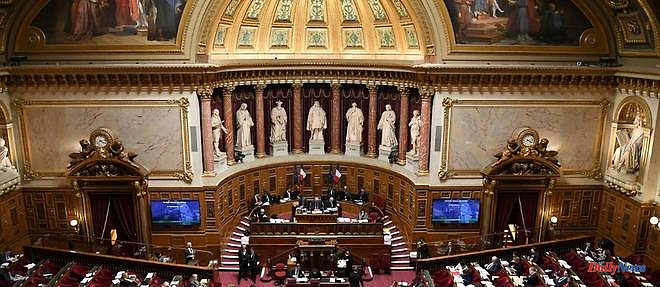Promotion of dangerous remedies, accusations of fraud … To fight against the abuse of certain stars of social networks, Parliament definitively adopted Thursday a transpartisan text to regulate the jungle of influencers.
After the Assembly on Wednesday, it is a new unanimity Thursday of 342 senators from all political stripes which marked the adoption of the text of the deputies Arthur Delaporte (Socialist Party) and Stéphane Vojetta (related Renaissance, presidential majority).
"We can welcome this unprecedented agreement," welcomed Senate rapporteur Amel Gacquerre (Centrist Union).
For the government, which supports the initiative, the Minister Delegate for Trade Olivia Grégoire praised "the commitment of parliamentarians" and "the quality of this work".
Influencers are estimated at 150,000 in France, but the actions of some of them have placed them under fire from critics.
Plaintiffs have launched class actions, a damning study has been published by the General Directorate for Competition, Consumer Affairs and Fraud Control (DGCCRF), and rapper Booba has also played a sounding board role through his attacks on social networks.
Promotion of dangerous products, accusations of fraud: the pressure is mounting to regulate the market.
Since Wednesday, influencers Illan Castronovo and Simon Castaldi have been forced to post a message from the DGCCRF on social networks warning against some of their content.
Many influencers have a modest audience, but some stars with millions of subscribers can influence consumer behavior, especially among young people.
"Influencers will continue to exercise. Influvoleurs will always exist but will know that the law is there to punish them", insists Arthur Delaporte. The text "will protect consumers, especially the youngest", promises Stéphane Vojetta.
The text proposes to legally define influencers as "natural or legal persons who, for a fee, mobilize their notoriety with their audience" to promote goods and services online.
It prohibits the promotion of certain practices - cosmetic surgery, therapeutic abstention - and prohibits or strongly regulates the promotion of several medical devices. It recalls the submission to the Evin law and prohibits the promotion of products containing nicotine.
It also attacks sports betting and games of chance: influencers will no longer be able to promote subscriptions to sports forecasts, and the promotion of games of chance and money will be confined to platforms that technically allow prohibit access to the video to minors.
The penalties provided for in the event of a breach will go up to two years in prison and a fine of 300,000 euros.
The proposed law also prohibits stagings with animals whose possession is prohibited.
When promotional images, for cosmetics for example, are retouched via a filter to make them more attractive, this must be mentioned.
Thursday, several senators insisted on the need to strengthen the means of the supervisory authorities in the future, in particular those of the DGCCRF and the Financial Markets Authority. "The sheriffs are multiple and must have the means to work properly," called Amel Gacquerre.
“Influencer agents” will also be supervised. A written contract will be mandatory when the sums involved exceed a certain threshold. The text also provides for accountability measures for the platforms.
While many successful influencers operate from abroad, such as in Dubai, the text wants to require those who operate from outside the European Union, Switzerland or the European Economic Area to take out civil insurance in The union. The stated goal is to create a jackpot to compensate potential victims. They will also have to appoint a legal representative in the EU.
At the end of March, the Union of Influencers and Content Creators (Umicc), which recently represents agencies in the sector, had welcomed "commendable and essential proposals". But she had alerted parliamentarians against the risk of "discriminating against or over-regulating" certain players.
06/01/2023 18:26:12 - Paris (AFP) - © 2023 AFP












